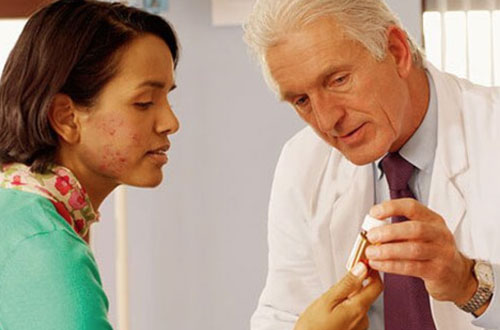
ACNE
Several myths exist about acne. Here are the facts.
- Acne is not a result of poor hygiene or infrequent washing. In other words, acne does not result from too much dirt on the skin or in the pores. Too much scrubbing may actually make acne worse.
- Acne is not caused by eating “fast” foods, chocolate, or high-fat foods.
- Acne is not a bacterial infection
Acne vulgaris is a common chronic skin disease involving blockage and/or inflammation of hair follicles and their accompanying sebaceous gland, and typically affects the face, upper chest, and back; Acne vulgaris may have a psychological impact on any patient, regardless of the severity or the grade of the disease.
Acne vulgaris is a clinical diagnosis. However, laboratory investigations may be indicated in the following situations:
- Polycystic ovarian syndrome (PCOS): These patients should be evaluated with total and free testosterone, dehydroepiandrosterone sulfate (DHEAS), androstenedione, luteinizing hormone, and follicle-stimulating hormone values, as well as a lipid panel, glucose value, and insulin level.
- Cases refractory to long-term antibiotic treatment or when improvement with antibiotics is not maintained: Culture skin lesions to rule out gram-negative folliculitis.
Management
Treatment of acne vulgaris should be directed toward the known pathogenic factors, and the aesthetic improvement of Acne scarring and pigment changes. The most appropriate treatment is based on the grade and severity of the acne.
-Pharmacotherapy: Appropriate medical treatment prescribed by a certified dermatologist; Prescriptions should be accompanied by a discussion of the potential adverse effects. Patients should be instructed on their morning and evening treatment programs.
- Manual extraction of white/blackheads and medical facial
- Intralesional steroid injections
- Superficial peels that use glycolic or salicylic acid
- Light and laser therapy
© copyright 2025 all rights reserved. Website By Maximagroup
